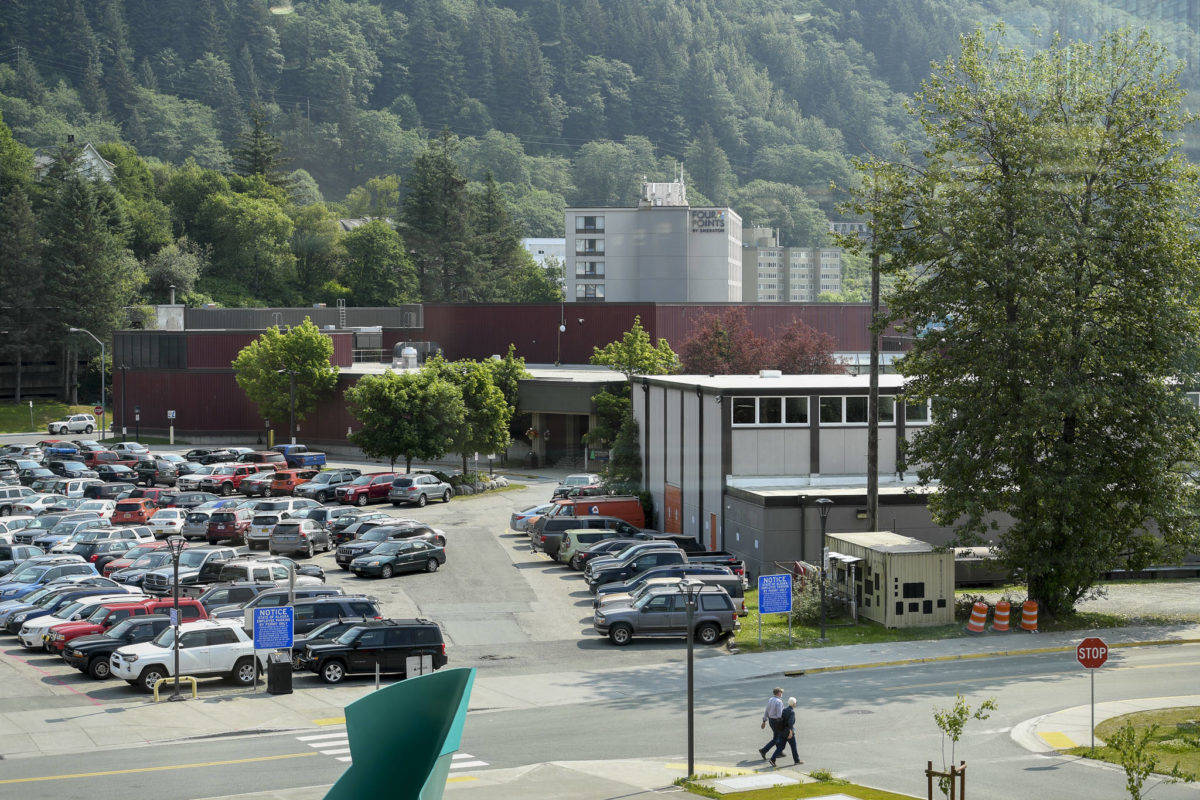Clarification: The Economic Stabilization Task Force did not propose the bond package but suggested the city consider an infrastructure project. The bond package was created by the City Manager’s office. This article has been updated to reflect the change. The Empire regrets the error.
City officials are developing a plan for a $15 million bond package that would fund a variety of infrastructure and maintenance projects on city-owned properties.
At a meeting Wednesday evening, the City and Borough of Juneau Assembly Finance Committee instructed the Finance Department to develop a more detailed model for how the package would work to be presented at a July 20 meeting. The Economic Stabilization Task Force suggested an infrastructure package, according to a memo from the City Manager’s office to Assembly members. That memo also gave a list of example projects to be funded.
“Capital projects create work and economic activity in the local professional services (Architects, Landscape Architects, Engineers, Surveyors), contracting community (all of the trades) and in local suppliers of materials, commodities, and equipment. The local expenditures also create a multiplier effect,” the memo said.
[Counting CARES: Assembly examines planned use of funds]
However, the city would need to take on debt to finance those projects, and taking on debt requires a vote of the people.
But under the current economic climate, even debt hawks are open to the idea.
“This is the solution that we’ve been looking for,” said Assembly member Wade Bryson. “I have heard this idea from every spectrum of the public, from very conservative all the way down to very unconservative. I’m usually opposed to taking on more debt, but when it comes to this infrastructure bond package, I am absolutely 100% behind this.”
That’s because the recent shock to the economy caused by the coronavirus pandemic is only expected to worsen, both nationally and in Alaska. State data show unemployment is higher in Southeast Alaska due to the region’s reliance on the cruise ship industry and seasonal labor. With little to no tourism in Southeast this year, officials are worried about how the region will be affected in the coming months.
“I really believe this is how Juneau digs itself out of the recession that we’re about to experience,” Bryson said.
The theory is that when private-sector spending dries up, governments should start spending to help stimulate the economy, even if it means taking on debt, according to City Manager Rorie Watt. Then-President Franklin D. President Roosevelt did the same thing during the Great Depression with the National Industrial Recovery Act which passed in 1933.
“I think that’s a good analogy,” Watt said in an interview. “I think it’s a matter of the timing of municipal expenditure, we were always going to need to repair the schools.”
Examples put before the Assembly included repairs and upgrades to schools and Centennial Hall, park improvements and extending the West Douglas Pioneer Road. A definitive list would be created at a later date, Watt said at the meeting.
The bond package would require a vote of the people and would appear on the ballot for the municipal election in October, Watt said, and would be a simple “Yes/No” vote on whether the city can take on $15 million in debt.
[Without state payments, how will cities repay school bonds? Higher taxes, most likely]
There are many ways the city could pay for the bonds, and they don’t all involve raising property taxes.
Different funding models using a combination of taxes, savings or loans could be used to pay for the loans, Watt said, but plans are complicated by uncertainty at the state level. State payments to school bonds were suspended by Gov. Mike Dunleavy in 2019. State lawmakers this year voted in funds into the budget to make at least some of those payments.
“I think there’s a reasonable expectation state participation in school bond debt reimbursement is declining,” Watt said, and if it did, and by how much, would affect how the city pays for the bonds.
City Finance Director Jeff Rogers gave Assembly members a detailed presentation of the city’s finances and payments options at Wednesday’s meeting, and was instructed to develop a more comprehensive model for the package for a July 20 meeting.
The package would be open to public testimony at an Aug. 3, meeting, according to Watt.
• Contact reporter Peter Segall at psegall@juneauempire.com. Follow him on Twitter at @SegallJnoEmpire.

